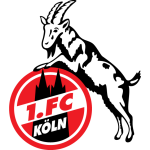In the heart of Germany's capital, where the concrete meets the spirit of audacity, there is a club that does not just play football, it breathes it. This is not your typical story of glitz and glamour, of billionaire owners and superstar signings. This is the tale of FC Union Berlin, the Eisern Union, the Iron Union. For decades, they were the outsiders, the underdogs, the club that stood against the odds. Their stadium, the legendary Alte Forsterei, is not just a place to watch a game; it is a living, breathing evidence of their unwavering spirit. It's a place where the fans are more than supporters; they are the heart and soul, the 12th man, the reason the pitch trembles when the team scores.
Union Berlin's rise is a fairytale written in sweat and grit, not in ink. They have climbed from the depths of the lower leagues to the bright lights of the Bundesliga, not by buying their way to the top, but by earning it, one nail-biting match at a time. This club is about more than just winning; it's about a bond between the team and the city, a shared belief that together, they can achieve the impossible. So, forget what you think you know about German football. Welcome to the world of Union Berlin, where passion triumphs over power, and the roar of the crowd is louder than any anthem. Welcome to the Iron Union.
FC Union Berlin is not your typical football club; it is a living evidence of audacity, community, and the unyielding will of its supporters. Nicknamed "Die Eisernen" (The Iron Ones), the club's identity was forged in opposition. Founded in 1966 in East Berlin, Union became the anti-establishment choice, a favorite of working-class citizens who resisted the communist regime and its state-sponsored rivals. Their iconic stadium, the Stadium at the Old Forester’s House, became a sanctuary for those who longed for freedom, where chants subtly protested the authority. This history of rebellion are still a core part of their identity and fuels their legendary rivalry with BFC Dynamo, a club famously linked to the Stasi secret police.
Their story of survival is just as powerful. When Union were on the brink of financial collapse in 2004, its fans did not just stand by; they took action. They launched the Bleed for Union campaign, where thousands of supporters donated blood and gave the money they received directly to the club, pulling it back from the brink of extinction. Four years later, facing a crumbling stadium that did not meet league regulations, over 2,000 fans came together and volunteered over 140,000 hours of their own time to rebuild their home. This incredible act of devotion is etched into the very concrete of the stadium, a permanent reminder of the bond between the club and its fans.
The club's rise to the top tier of German football is a modern fairytale. For decades, Union ground their way through the lower leagues, a constant underdog. Their promotion to the Bundesliga in 2019 was a monumental achievement, making them the first club from the former East Berlin to play in Germany's top flight. But they did not just settle for survival; they thrived. Union have consistently defied expectations, not with a massive budget or big-name signings, but with smart recruitment, tactical discipline, and a collective fighting spirit that embodies FC Union Berlin history. Their success culminated in a stunning fourth-place finish in the 2022/2023 season, which saw them qualify for the UEFA Champions League for the very first time in their history. This incredible achievement is evidence of their philosophy and the powerful, symbiotic relationship between the team and its supporters, proving that in football, heart and soul can triumph over everything.

















-1765539490516.webp)














